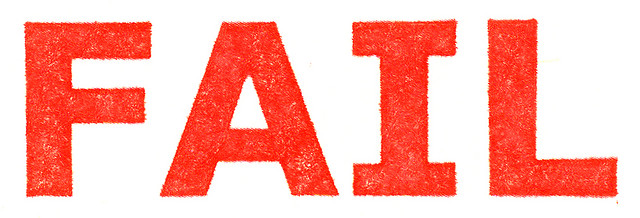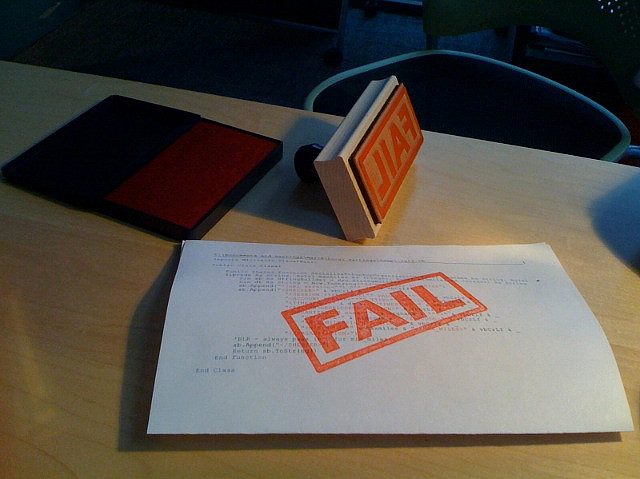The Positive Power of Negativity
Your goal for this week: complain.
You must bitch and moan and highlight the injustice of your plight.
You must be sincere. You must be honest. You must provide details, including dates and names.
You must release this negativity into the world intentionally, preparing yourself for positive returns.
There’s just one catch.
You can’t complain about anyone else. You have to complain about yourself, and specifically about your failures.
I’ve been thinking a lot about failure recently.
In part because I’m juggling two jobs, one which I love and another that pays the bills.
In addition, I’m doing my best to maintain a social life that’s separate from work and spend time with my family. The dull day-to-day duties of laundry, pets, house cleaning, bill paying and errand running are also in the mix. When you sprinkle on top a brain chemistry that’s not always my best friend, it’s a lot to balance.
Every single day I feel like I’m failing at (at least) one of my many responsibilities.
Which isn’t surprising because there are only 24 hours in a day and if I devote 6.5 of them to sleeping, there’s still a ton to do and not enough time to do it in.
But if I stay in my head, it’s hard to have that perspective. It’s hard to realize that I can’t, and won’t be able to, do everything.
The other thing that got me thinking about failure recently is a post I ran across. Greg Knauss posted about his experience at XOXO this year, an event that by all accounts is one of the most inspiring conferences on creativity and independence a person can attend.
Walking away from the weekend he found himself thinking about failure. And not in a comparative I-just-saw-amazing-people-talk-about-amazing-things-all-weekend-and-I feel-like-crap sort of way. Instead thinking of failure as the reality never spoken about, outside of the pre-approved struggle, eat ramen, work out of your parents’ garage storyline.
Failure, fall flat on your face and eat it failure, is a part of creativity. It’s a part of trying new things and building new tools. Failure can sit side-by-side with success because the concepts aren’t exclusive of one another. You can achieve success in your career and still struggle with failure, or a sense of failure, in your personal life.
Heck, you can succeed in your career and still feel like you’re failing in your career.
It’s not enough to just fail, though. Anyone can do that. That’s easy.
In order for your failure to be useful and positive, you have to talk about it. You have to share that experience with other people. You have to get what you’re buzzing about outside of your head.
Talking about failure will help you learn about what went wrong and why. It’s also an important and necessary part of improving our community. When we share our failures with one another it makes for a stronger, more informed, more capable community of makers, creators, artists, and freelancers.
From Greg’s post:
The decisions our dreams inspire have consequences, and if we imperfectly understand those consequences, the results can be devastating.
This is about how we evaluate risks, gauge costs, and — ultimately — accept and move on from the failure to achieve what we set out to. We cannot be whole unless we acknowledge, discuss and internalize the sometimes shattering consequences of taking a leap and plummeting straight into the ground. We’ve got the conversation about success down pretty well — probably too well, in fact, to where the topic almost automatically evokes the standard storyline of passion, struggle, victory. But until we can talk just as freely about failure, the story of indie culture remains a Disneyfied fairy tale — based on reality, but without the occasionally ugly ending.
So this week, I want you to complain. I want you to share one of your failures with a peer. I want to you talk about what you did, why you did it and why it feels like a failure. I want you to be honest. It will be scary to talk about your failure like this, but you can do it.
And once you’ve laid bare that failure, I want you to listen.
Listen for what your story tells you about yourself. Listen for the other person’s perspective. Listen for the lesson that comes from the failure they’ll share with you.
As independent makers and doers we have the potential to join together and create exceptionally strong communities. But we won’t get there if all we share with one another are the shiny bits.
Categories: The Rest, Uncategorized




